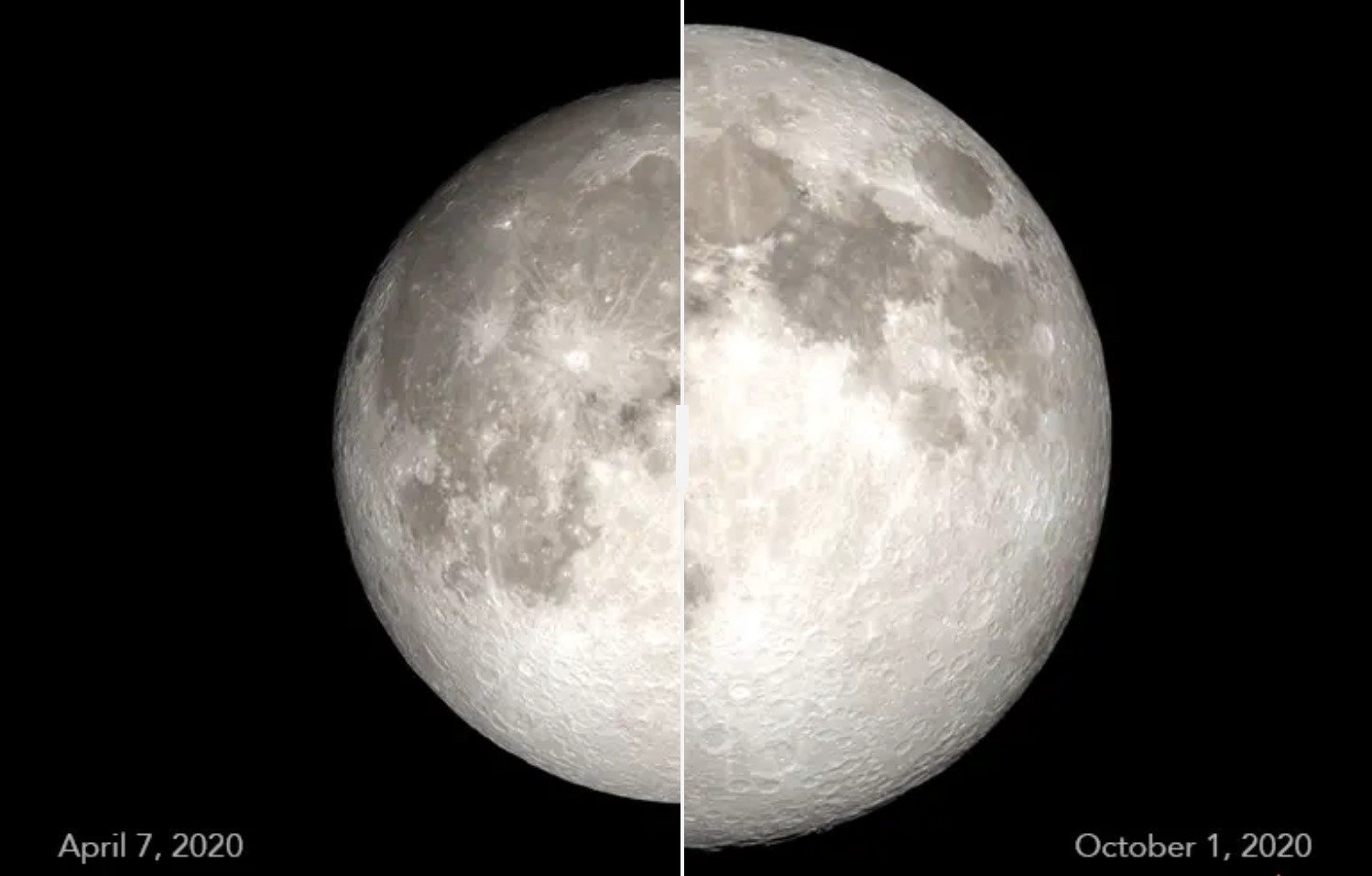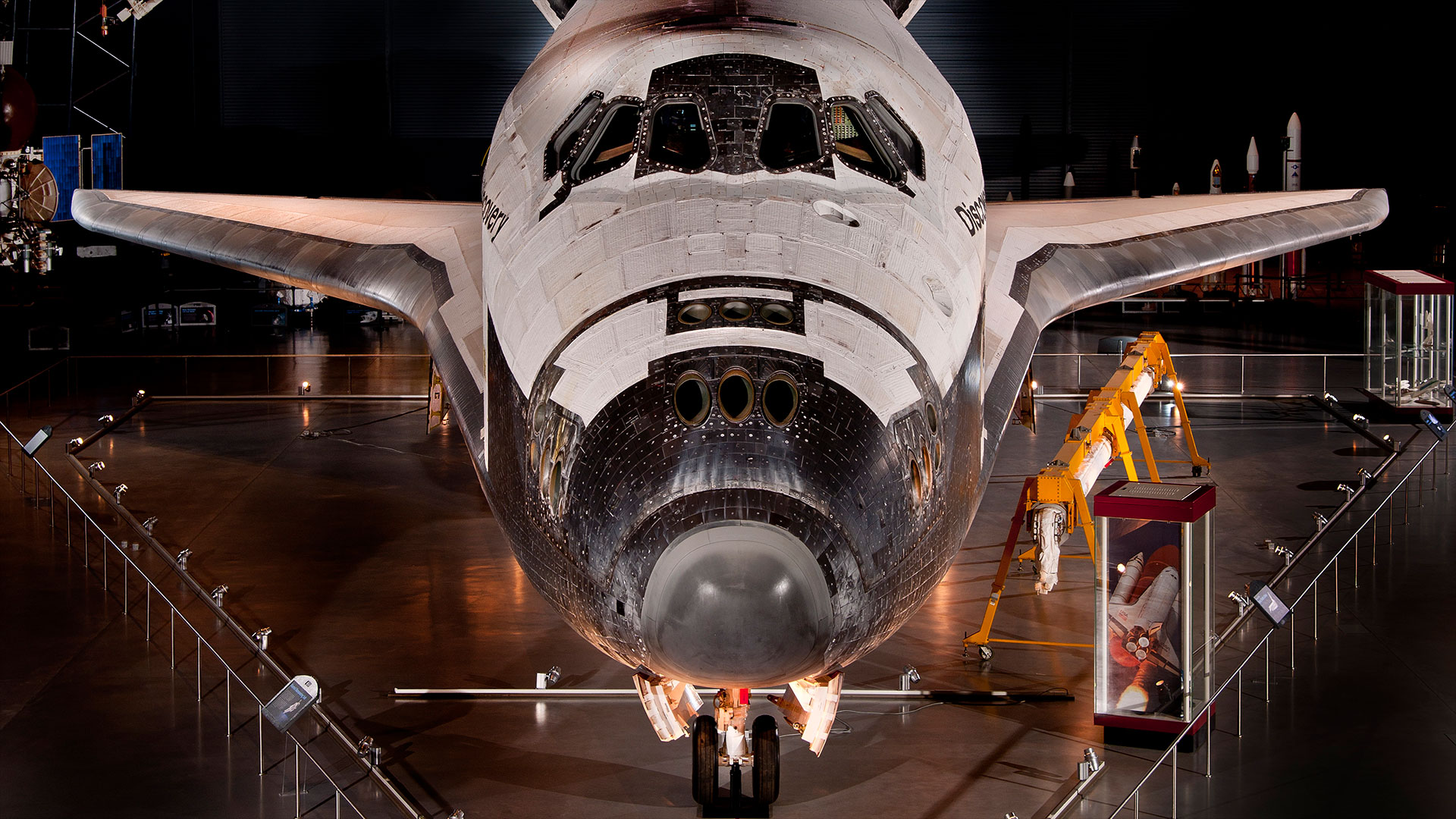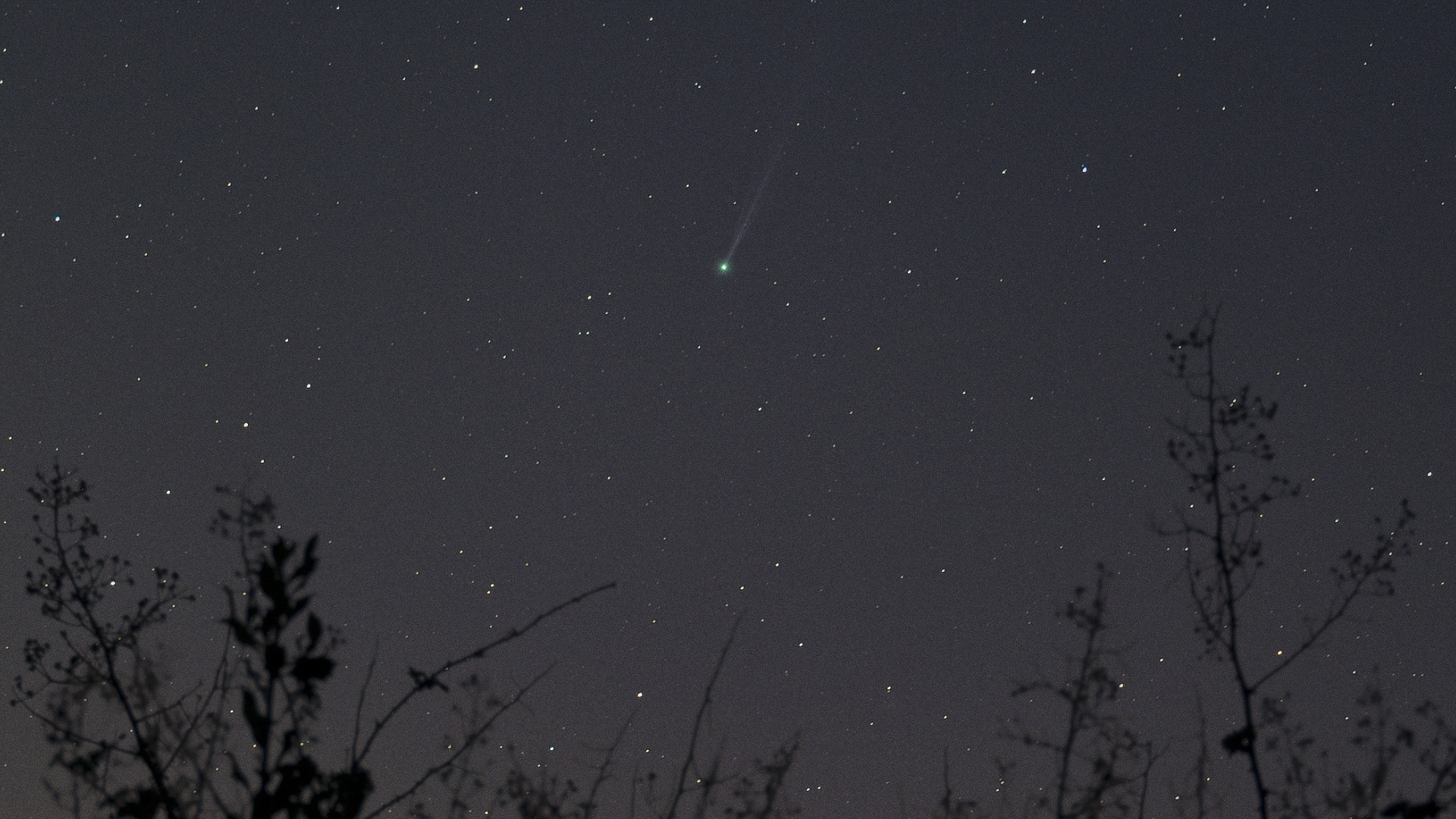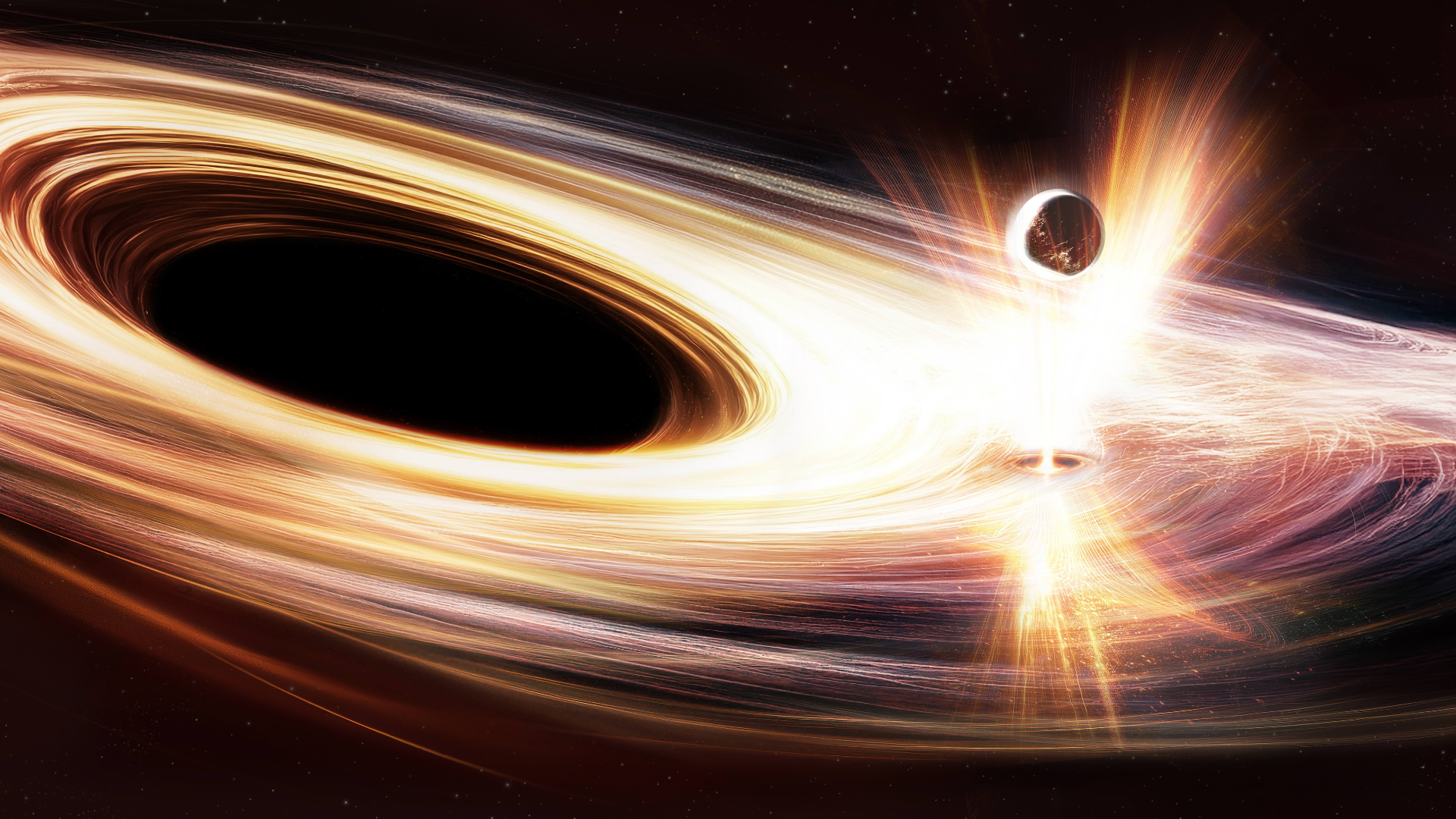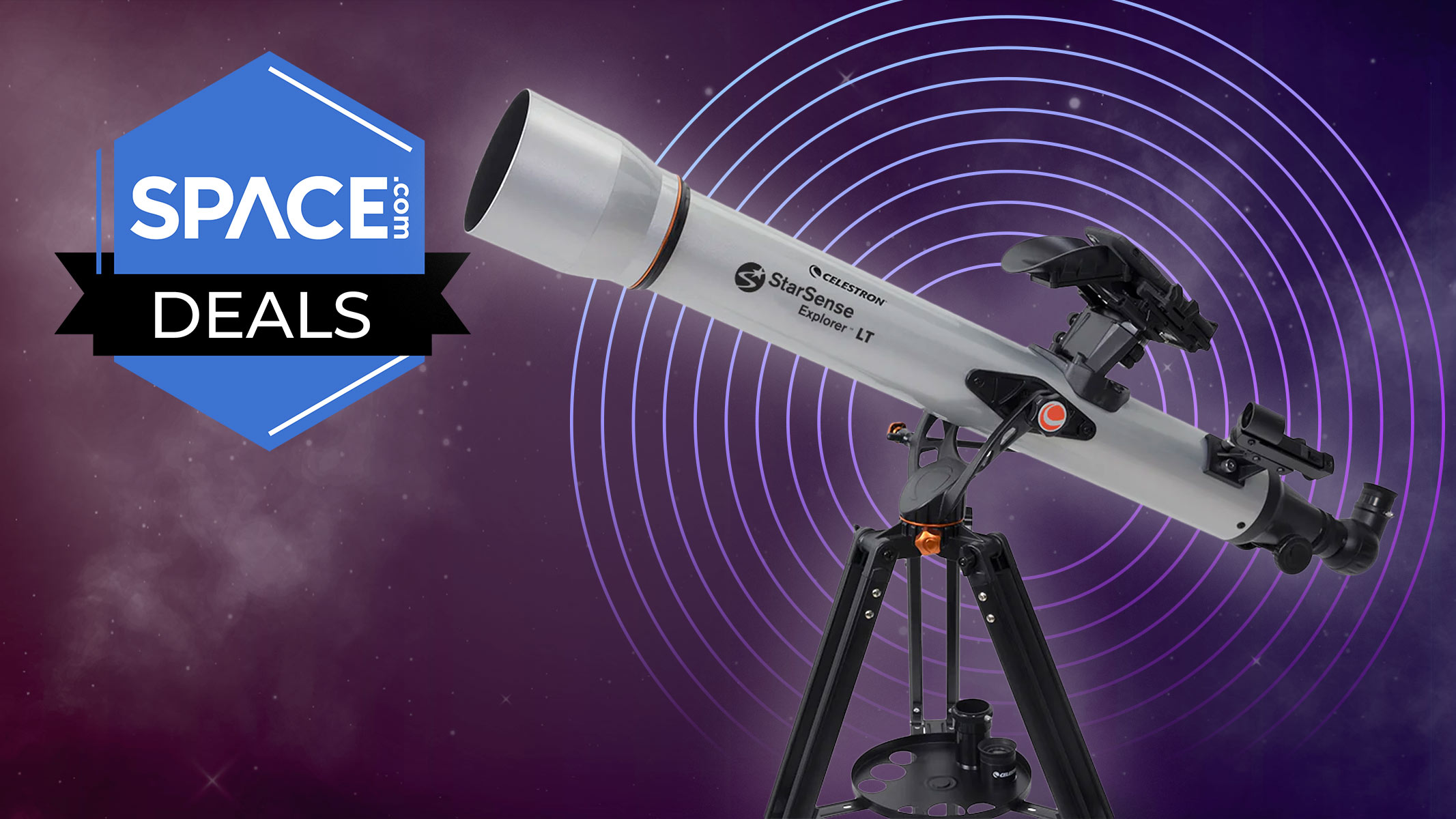The United States is racing to the moon once again.
The nation aims to put boots on the lunar surface by 2024, four years earlier than previously planned, Vice President Mike Pence announced yesterday (March 26). The schedule shift was prompted at least in part by a desire to defeat two other space powers that Pence described as adversaries: Russia and China.
"Make no mistake about it — we're in a space race today, just as we were in the 1960s, and the stakes are even higher," Pence said during the fifth meeting of the National Space Council (NSC) at the U.S. Space & Rocket Center in Huntsville, Alabama.
Related: Home On the Moon: How to Build a Lunar Colony (Infographic)
"What we need now is urgency," he added. "The United States must remain first in space in this century as in the last, not just to propel our economy and secure our nation but, above all, because the rules and values of space, like every great frontier, will be written by those who have the courage to get there first and the commitment to stay."
Pence cited China's robotic Chang'e 4 mission, which, in January, aced the first-ever soft landing on the moon's mysterious far side. The touchdown, Pence said, "revealed [China's] ambition to seize the lunar strategic high ground and become the world’s pre-eminent spacefaring nation."
The vice president also lamented the United States' current reliance on Russian Soyuz rockets and spacecraft to get NASA astronauts to and from the International Space Station (ISS), at a cost of about $80 million per seat. This has been the situation since July 2011, when NASA grounded its space shuttle fleet. (Things should change soon, however; SpaceX's Crew Dragon capsule is on schedule to launch astronauts to the orbiting lab for the first time this summer, and Boeing's CST-100 Starliner spacecraft could do the same a few months later.)
Get the Space.com Newsletter
Breaking space news, the latest updates on rocket launches, skywatching events and more!
The original space race, of course, was the Cold War struggle between the United States and the Soviet Union. The Soviets won the initial rounds, launching the first artificial satellite (Sputnik 1) and the first person to fly to space (Yuri Gagarin) in 1957 and 1961, respectively. But the United States rallied, landing the crewed Apollo 11 mission on the moon in July 1969.
The Apollo program pulled off five additional crewed lunar touchdowns, the last of which, Apollo 17, occurred in December 1972. Twelve people have set foot on the moon, and all of them were Apollo astronauts.
The success of Apollo established the United States' "rightful place as the undisputed leader in the exploration of the heavens," Pence said yesterday.
"Now, more than 50 years later, we gather here today to say that it's up to this generation to meet the challenge of our time," he said. "I believe that we are rising to meet that challenge head-on."
The importance of U.S. space supremacy and the threat posed by China and Russia are recurring themes for Pence and other officials in the administration of President Donald Trump. Pence highlighted these issues earlier this month in an op-ed in The Washington Post that called on Congress to establish the Space Force.
"China and Russia are aggressively developing and deploying capabilities — including anti-satellite weapons, airborne lasers, menacing 'on-orbit' capabilities and evasive hypersonic missiles — that have transformed space into a warfighting domain," Pence wrote, linking to a February 2019 report by the U.S. Defense Intelligence Agency.
"While our adversaries have weaponized space, too often we have bureaucratized it," he added (italics his). "Organizational inefficiencies that plague our space military authorities, warfighting capabilities, acquisition programs and personnel policies stifle our ability to meet the rapidly evolving threats in space."
But Pence doesn't speak for the entire U.S. space program. Earlier this month, for example, NASA chief Jim Bridenstine denied that the nation is engaged in a space race.
"That race is over," Bridenstine said on March 2, shortly after the launch of Crew Dragon on its first test flight to the ISS. "We went to the moon and we won. It's done. Now, we're in a position where we can take our time and make sure we get it right."
And the competitors Pence named have not necessarily agreed to join such a race. China's crewed moon plans remain unofficial at the moment, for instance, and that nation is not racing in this regard but rather working to establish a project that's sustainable over the long haul, Dean Cheng, a senior research fellow at The Heritage Foundation who's an expert on China's space program, told Space.com in January.
- NASA Plans to Build a Moon-Orbiting Space Station: Here's What You Should Know
- In Photos: President Trump Aims for the Moon with Space Policy Directive 1
- Presidential Visions for Space Exploration: From Ike to Trump
Mike Wall's book about the search for alien life, "Out There" (Grand Central Publishing, 2018; illustrated by Karl Tate), is out now. Follow him on Twitter @michaeldwall. Follow us on Twitter @Spacedotcom or Facebook.
Join our Space Forums to keep talking space on the latest missions, night sky and more! And if you have a news tip, correction or comment, let us know at: community@space.com.

Michael Wall is a Senior Space Writer with Space.com and joined the team in 2010. He primarily covers exoplanets, spaceflight and military space, but has been known to dabble in the space art beat. His book about the search for alien life, "Out There," was published on Nov. 13, 2018. Before becoming a science writer, Michael worked as a herpetologist and wildlife biologist. He has a Ph.D. in evolutionary biology from the University of Sydney, Australia, a bachelor's degree from the University of Arizona, and a graduate certificate in science writing from the University of California, Santa Cruz. To find out what his latest project is, you can follow Michael on Twitter.
